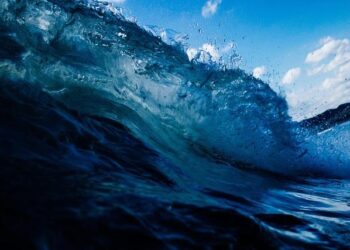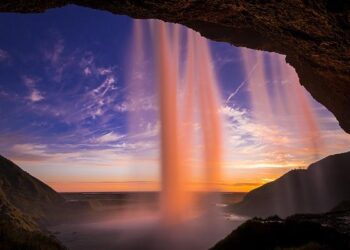In a striking contrast that highlights the diverging global approaches to whaling, Iceland has announced the cancellation of its fin whale hunting season, drawing praise from conservationists worldwide. Meanwhile, Japan and Norway have proceeded to launch their own controversial whale hunts, targeting vulnerable species and igniting fierce criticism from animal welfare organizations. The Animal Welfare Institute has condemned these actions as both cruel and unsustainable, underscoring the ongoing tensions between cultural traditions and modern conservation efforts. This article examines the unfolding developments and the broader implications for whale populations and international wildlife protection.
Iceland’s Decision to End Fin Whale Hunts Signals a Shift Toward Conservation
Iceland’s recent move to halt its fin whale hunts marks a notable departure from its previous stance and is being hailed as a pivotal step toward marine conservation. This decision breaks a long-standing tradition of commercial whaling practice in the North Atlantic nation and aligns Iceland more closely with global efforts to protect vulnerable whale populations. Conservationists emphasize that the end of fin whale hunting could lead to gradual population recovery, reinforcing the delicate marine ecosystem where these majestic mammals play a crucial role.
While Iceland’s choice reflects progress, the situation remains dire elsewhere. Both Japan and Norway have initiated new seasons of whale hunts, targeting species with questionable sustainability and exposing the profound ethical controversies tied to such practices. The following table contrasts key metrics from the three nations’ recent whale hunting activities:
| Country | Target Species | Hunt Status | Annual Quota | Conservation Impact |
|---|---|---|---|---|
| Iceland | Fin Whale | Halted in 2024 | 0 | Positive shift |
| Japan | Common Minke Whale | Active season 2024 | 367 | Highly controversial |
| Norway | Common Minke Whale | Active season 2024 | 1,278 | Criticized for sustainability |
- End of an era for Icelandic fin whale hunts
- Japan and Norway continue quota-driven hunts
- Growing international pressure for ethical fisheries
Japan and Norway Renew Controversial Whale Hunting Practices Despite Global Criticism
Despite mounting international opposition, Japan and Norway have each commenced new whale hunting seasons that have reignited fierce debates over ethics and sustainability. Japan, having controversially resumed commercial whaling in 2019 after withdrawing from the International Whaling Commission (IWC), continues to target several whale species under the guise of cultural tradition and scientific research. Norway, a consistent opponent of the IWC moratorium, maintains its quotas, citing economic and cultural reasons, even as conservation groups highlight the long-term ecological risks and the declining populations of certain whale species in their waters.
Key criticisms against these practices include:
- Violation of international conservation agreements.
- Increased risks to endangered and vulnerable whale populations.
- Ethical concerns related to the inhumane methods employed.
- Contradictions to global efforts aimed at marine biodiversity preservation.
The following table illustrates recent quotas compared to estimated whale populations in each country’s primary hunting zones:
| Country | Whale Species Targeted | Annual Quota | Estimated Population | Conservation Status |
|---|---|---|---|---|
| Japan | Bryde’s whale, Minke whale | 333 | ~20,000 | Vulnerable |
| Norway | Common minke whale | 1,278 | ~100,000 | Least Concern |
Experts Urge Stronger International Regulations to Protect Whale Populations and Promote Animal Welfare
Leading marine conservationists and animal welfare experts have voiced urgent calls for the implementation of more robust international frameworks aimed at halting the precipitous decline of whale populations worldwide. Despite Iceland’s recent decision to end its fin whale hunts-a move celebrated by environmental groups-Japan and Norway have resumed commercial whaling activities, sparking global outrage. Critics argue that current regulations are insufficient, outdated, and marred by loopholes that allow nations to exploit “scientific research” exemptions and cultural exceptions to continue unsustainable hunting practices.
Key demands from experts emphasize the need for:
- Stricter enforcement of the International Whaling Commission (IWC) moratorium on commercial whaling
- Enhanced monitoring and transparent reporting mechanisms facilitated by independent observers
- Greater collaboration between governments, NGOs, and indigenous groups to phase out whale hunts
- Inclusion of animal welfare standards that prioritize the minimization of suffering throughout all stages of hunting and handling
| Country | Whale Hunt Status | Annual Quota | Animal Welfare Rating |
|---|---|---|---|
| Iceland | Paused | 0 | High |
| Japan | Active | 333 | Low |
| Norway | Active | 917 | Low |
Future Outlook
As Iceland suspends its fin whale hunts, drawing international praise for prioritizing conservation, the recent decisions by Japan and Norway to proceed with their controversial whale hunting seasons have sparked renewed global concern. Critics argue these actions not only undermine efforts to protect vulnerable whale populations but also perpetuate practices deemed cruel and unsustainable by animal welfare advocates. As the debate continues, the contrasting approaches highlight the ongoing challenges in balancing cultural traditions, economic interests, and the imperative of marine conservation on the world stage.















